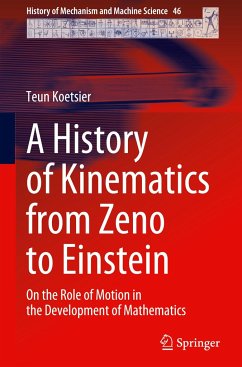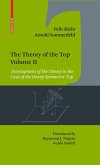This book covers the history of kinematics from the Greeks to the 20th century. It shows that the subject has its roots in geometry, mechanics and mechanical engineering and how it became in the 19th century a coherent field of research, for which Ampère coined the name kinematics. The story starts with the important Greek tradition of solving construction problems by means of kinematically defined curves and the use of kinematical models in Greek astronomy. As a result in 17th century mathematics motion played a crucial role as well, and the book pays ample attention to it. It is also discussed how the concept of instantaneous velocity, unknown to the Greeks, etc was introduced in the late Middle Ages and how in the 18th century, when classical mechanics was formed, kinematical theorems concerning the distribution of velocity in a solid body moving in space were proved. The book shows that in the 19th century, against the background ofthe industrial revolution, the theory ofmachines and thus the kinematics of mechanisms received a great deal of attention. In the final analysis, this led to the birth of the discipline.
Bitte wählen Sie Ihr Anliegen aus.
Rechnungen
Retourenschein anfordern
Bestellstatus
Storno








